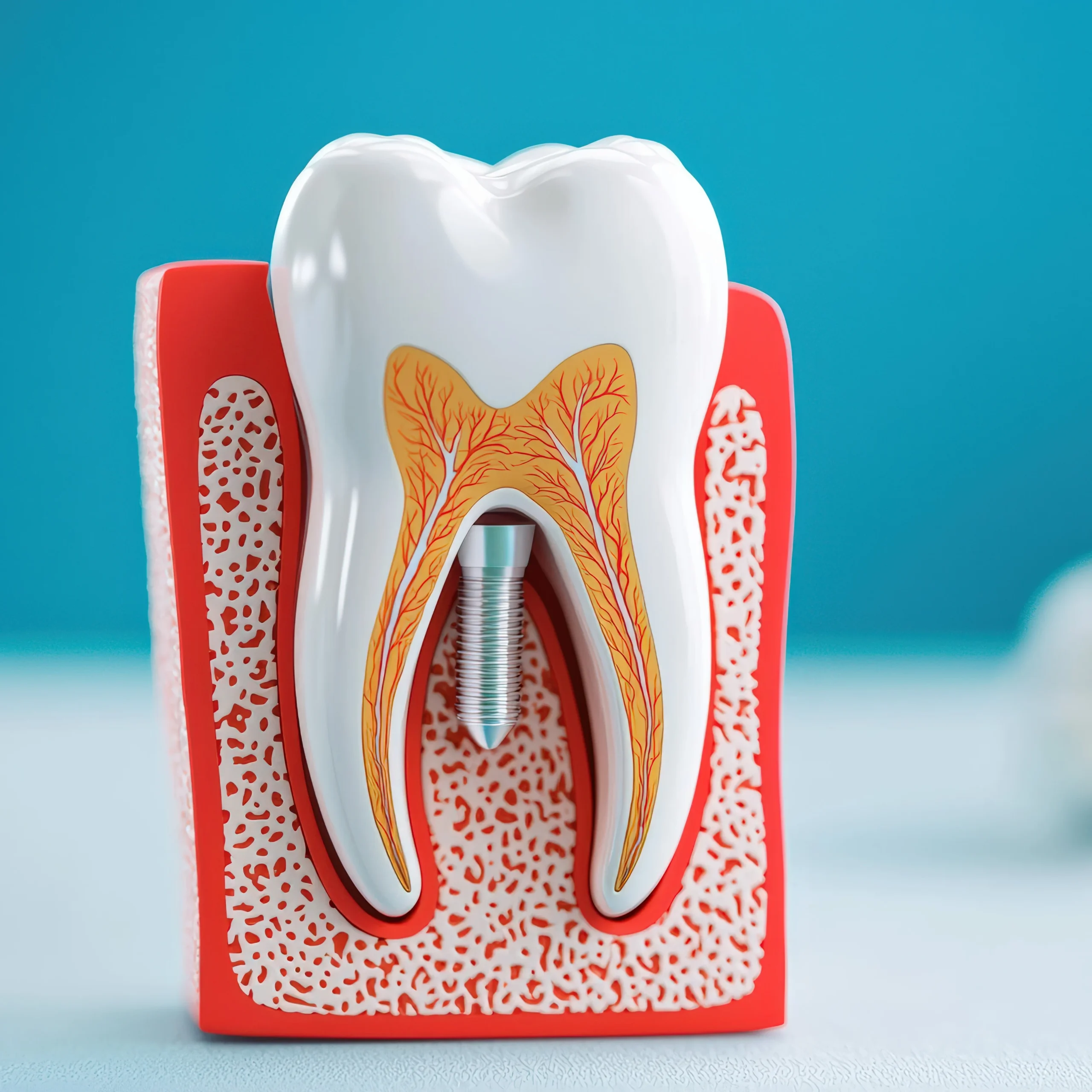Root Canal Treatment Cuffley
A root canal is a dental procedure used to treat and save a tooth that is badly decayed, infected, or damaged. It involves removing the infected or inflamed pulp (the soft tissue inside the tooth), cleaning and disinfecting the root canals, and then filling and sealing them to prevent further infection. This treatment helps relieve pain, stop the spread of infection, and preserve the natural tooth, avoiding the need for extraction.
Despite its reputation, a root canal is not a painful procedure—modern techniques and anesthesia make it relatively comfortable for most patients. After the procedure, a crown is often placed on the treated tooth to restore its strength and function. With proper care, a tooth that has undergone a root canal can last as long as your natural teeth, making it a reliable option for maintaining oral health and function.

Benefits Of Treatment
- Pain Relief: A root canal removes infected tissue, relieving the intense toothache and sensitivity caused by infection or inflammation.
- Saves the Natural Tooth: Instead of extracting the tooth, a root canal allows you to keep your natural tooth, preserving your smile and bite alignment.
- Prevents Spread of Infection: By cleaning and sealing the tooth, a root canal stops the spread of bacteria to surrounding teeth and gums.
- Restores Tooth Function: After being capped with a crown, the treated tooth can function normally for chewing, speaking, and maintaining jaw stability.

Send Us An Enquiry
Frequently Asked Questions
Is a root canal painful?
No, modern root canal treatments are performed with local anesthesia and are generally no more painful than getting a filling.
How long does a root canal take?
Most root canals can be completed in one or two appointments, depending on the severity of the infection and the tooth being treated.
What are the signs I might need a root canal?
Common signs include severe toothache, prolonged sensitivity to hot or cold, swollen gums, darkening of the tooth, or a pimple-like bump on the gums.
Can a root canal fail?
While root canals are highly successful, there is a small chance of reinfection. This can often be treated with a retreatment or endodontic surgery.
What happens after a root canal?
After the procedure, the tooth may feel sensitive for a few days. A crown is usually placed to protect and strengthen the tooth, and normal activities can typically resume within a day.










